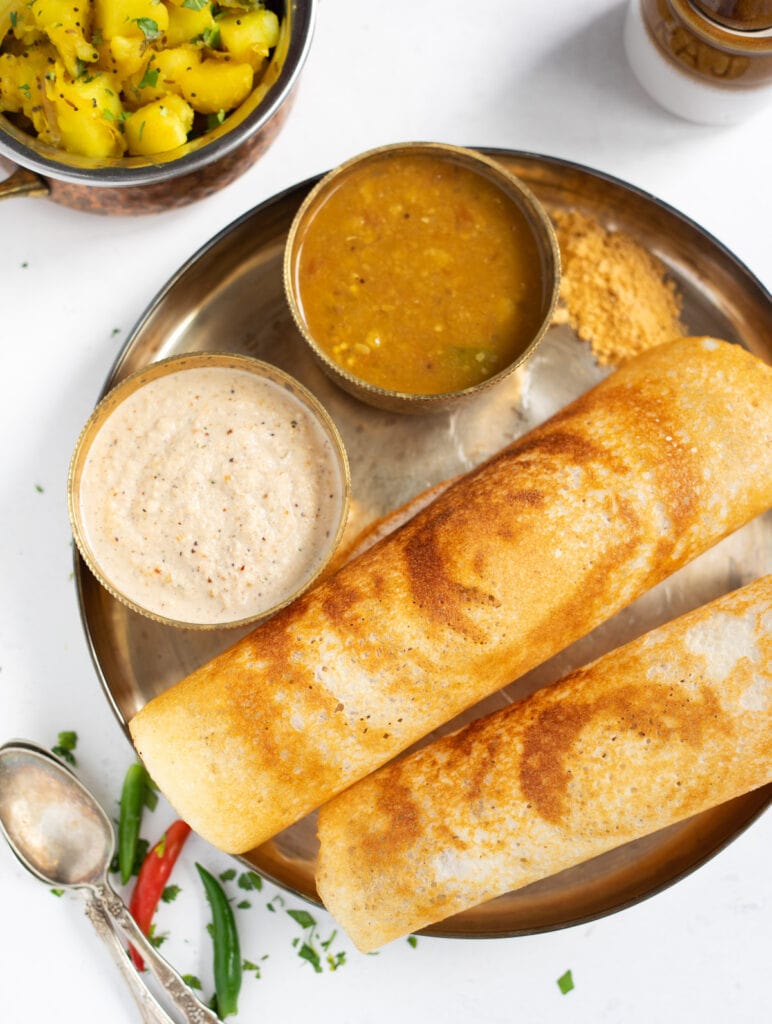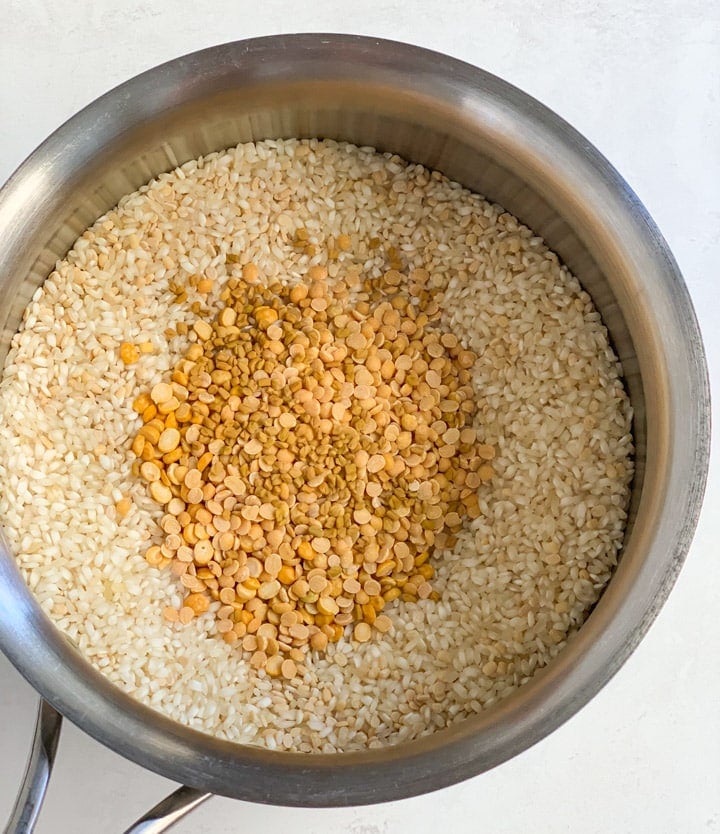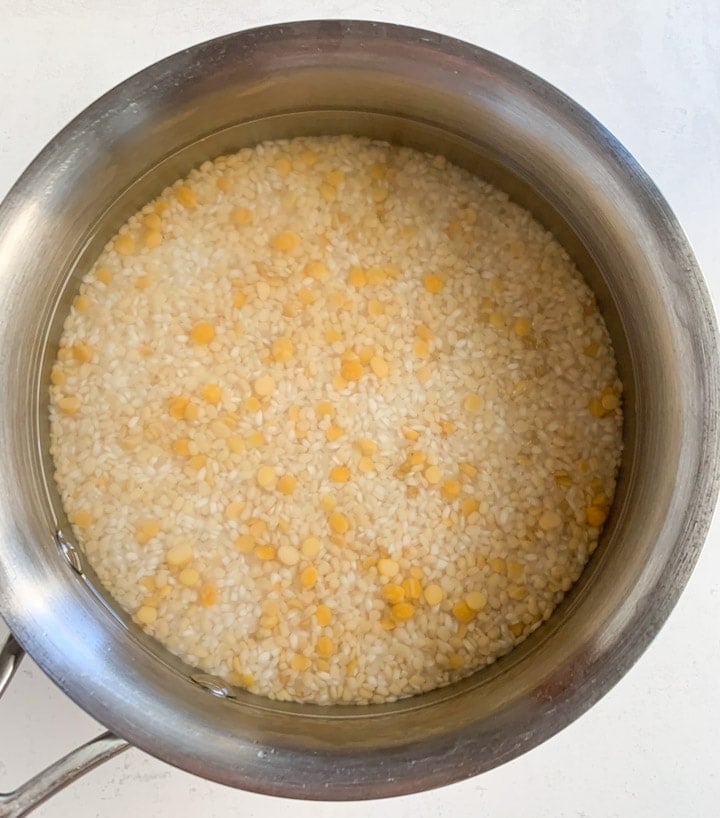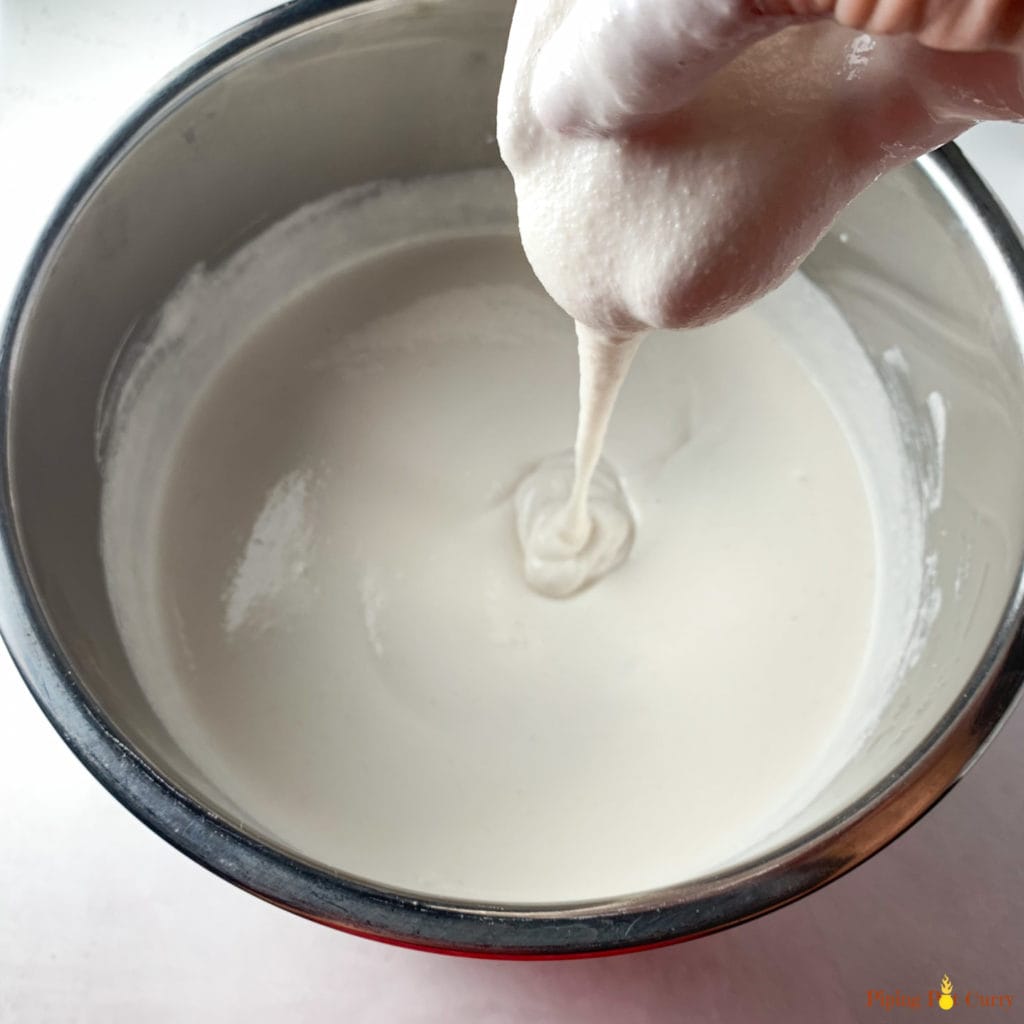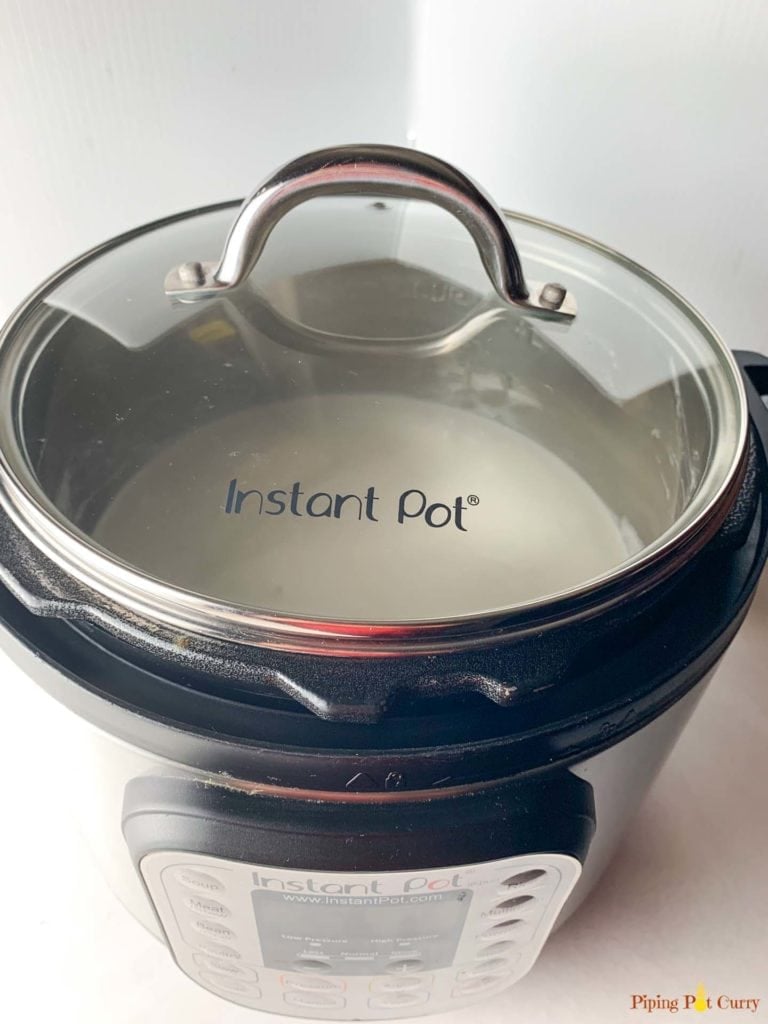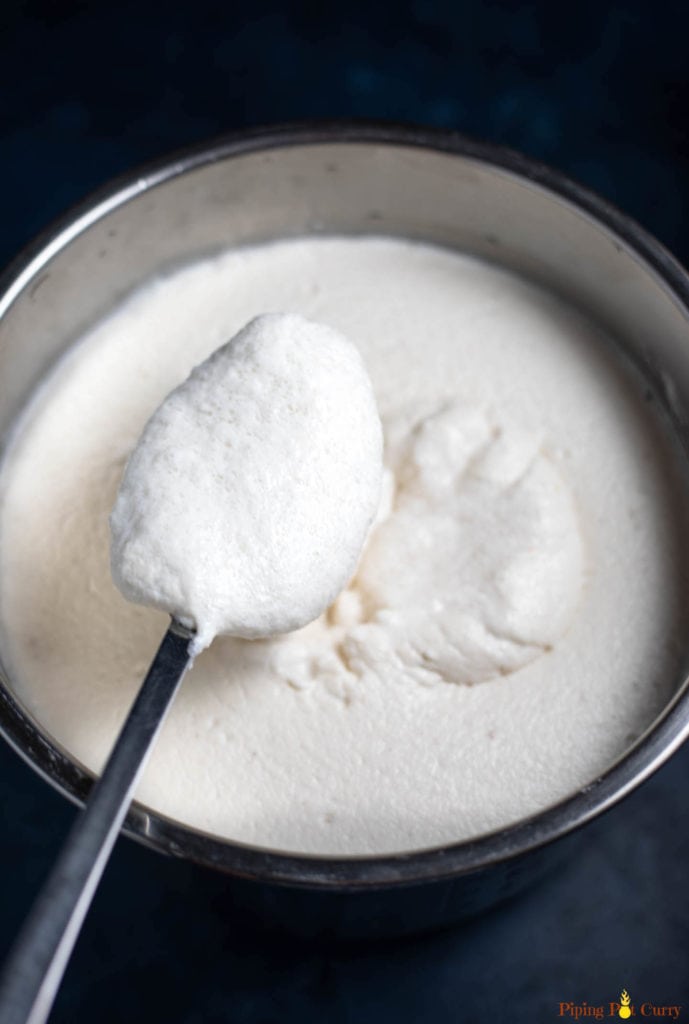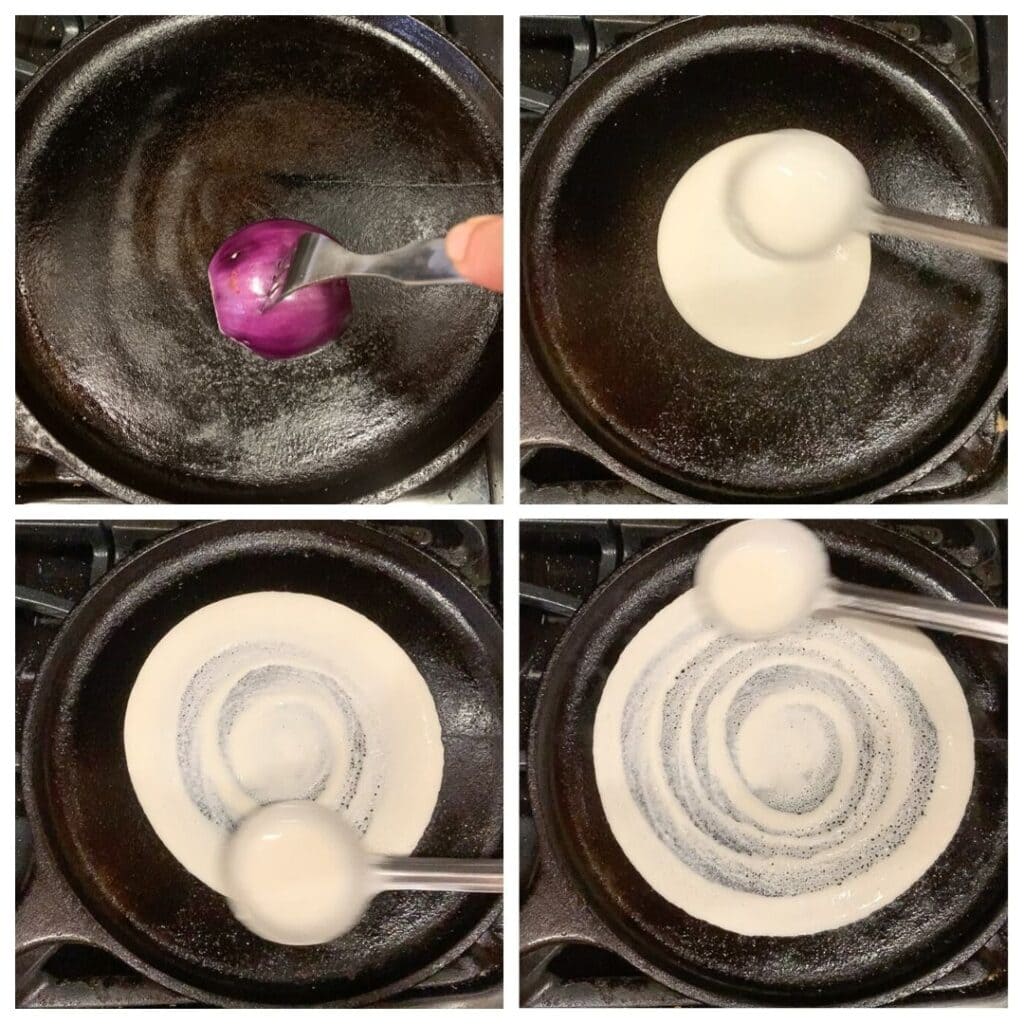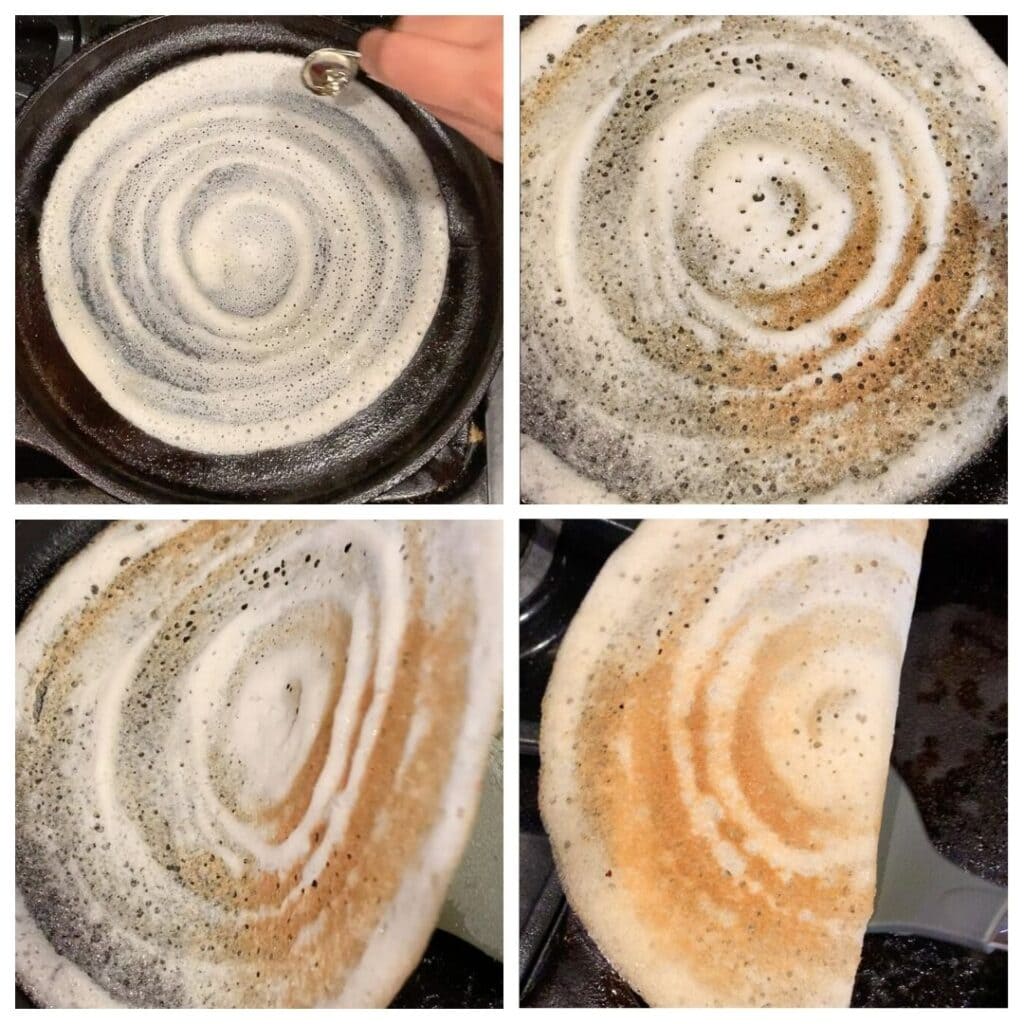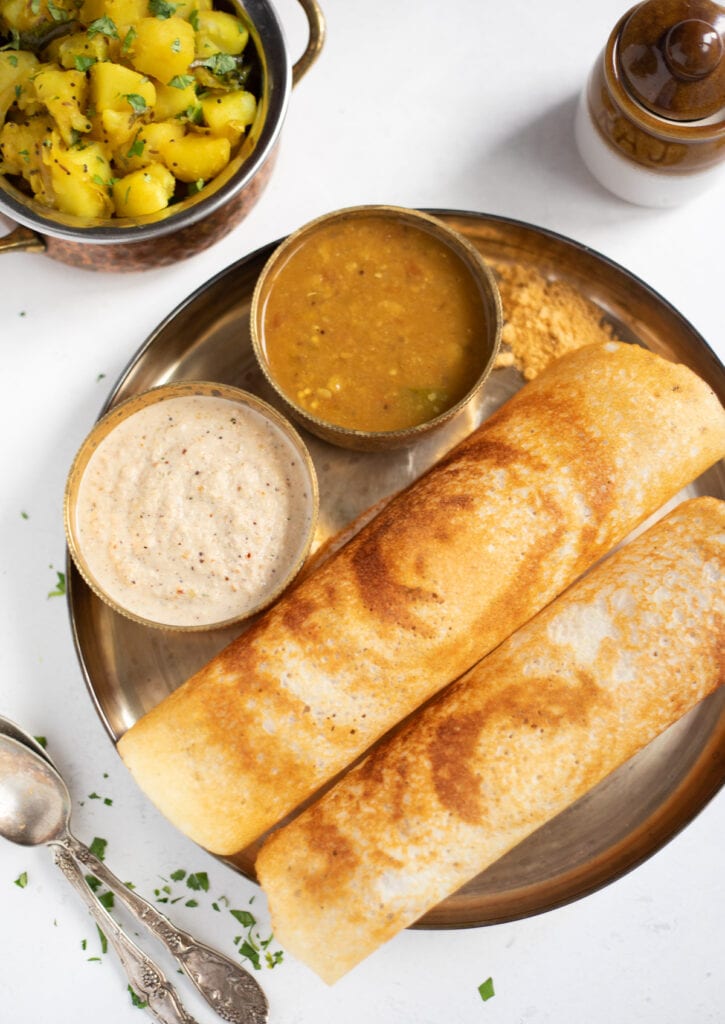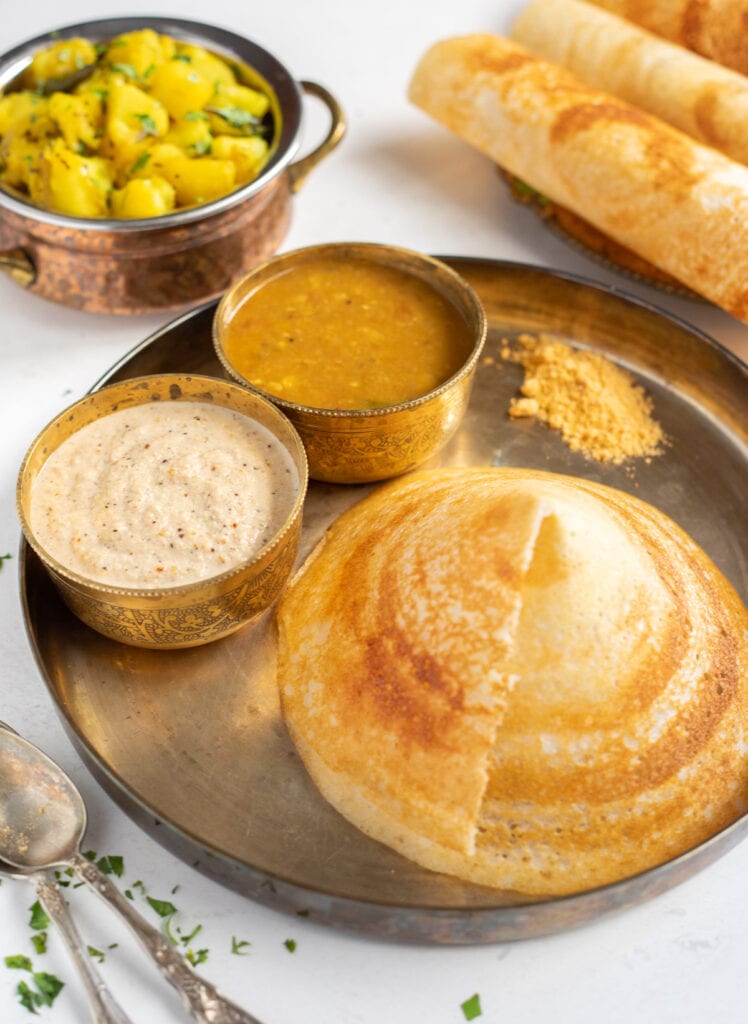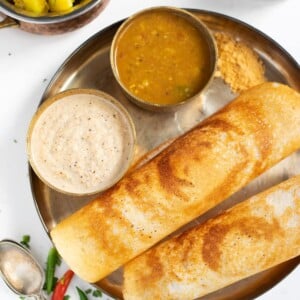My family loves South Indian food, and recently the girls have been all about dosa. They love dosa so much, and would eat it every day! I have gotten numerous requests for a dosa recipe (ever since I shared about making dosa on instagram). I make it so often, just never got to sharing it here. So here it is today! This is the plain dosa or sada dosa recipe. You can easily tailor this recipe to make masala dosa or cheese dosa. I have also shared my healthy quinoa dosa recipe. I had shared my idli dosa batter recipe long back and it has been loved by you all. This recipe is great if you want to make one batter for both idli and dosa. This time I am sharing the batter which is more tailored to making dosa and uttapams. You will get even more crispier dosa’s with this recipe. This specific recipe for the batter is from my friends mom who specifically makes separate batter for dosa this way and for idli uses idli rava. I will share that idli recipe soon too. I use the Vitamix blender to grind the batter. Then the batter can be fermented in the instant pot or in a warm place such as the oven with the lights on if you live in a cool place. After trying this batter, and seeing how easy it is, you will never buy dosa batter from the store. I make the batter once over the weekend and use it all week to make dosa and uttapam. If you are new to making dosa and batter at home, then I highly suggest to read the whole post as I am sharing lots of tips to get the perfect crispy dosa’s. Also, remember compared to idli, batter for dosa is much more forgiving. So that is definitely a good motivation to try it out 🙂 Okay…let’s get straight to the recipe!
How to make Dosa Batter?
The first step is to make the dosa batter. This is also called dosa khi or maavu.
Dosa Ingredients
Getting the right proportion of dal and rice for dosa batter is an important first step. And also which rice and dal’s to use.
Rice: There are some options here. You can use regular Sona Masoori rice or Idli Rice (parboiled rice).
You can also use a combination of equal parts of Idli Rice and Sona Masoori rice.
You will also find dosa rice in stores that can be used.
The taste of the dosa and the crispiness varies with the rice used. I have used all of them and have been able to make great crispy dosa with them.
Dal: Use whole urad dal (gota) or split urad dal (dhuli) for batter. This is dehusked black gram lentils.
I also add Chana Dal and Toor Dal. This makes the dosa even more crispy.
Poha: Poha is flattened rice. I like to add poha to the batter, as it helps with making crispy dosa.
I also add fenugreek seeds (methi seeds) when making the batter. This was a tip from my South Indian friends mom, that it helps with fermentation.
Dal and Rice Ratio for Batter
I use a ratio of 1:3 for dal to rice. So 1/2 cup of urad dal and 1-1/2 cups of rice. As I mentioned earlier, I also use one tablespoon each of Chana Dal and Toor Dal in this recipe.
Soaking Rice and Dal
When making batter for idli, it is required to soak dal and rice separately. However it is not necessary to do that when making only dosa. Add urad dal, rice, chana dal, toor dal and methi seeds to a large bowl. Rinse till the water runs clear. Soak in about 6 cups of water for 4-5 hours.
Grinding the Batter
In South India, people use a wet grinder to grind batter. However I personally don’t want to have a separate gadget just to make batter, so I use a high performance blender (Vitamix) to grind the batter. You need a strong grinder that can make the batter very fine, while not heating it up. Soak poha in water about 20 minutes before grinding the batter. Drain water from the soaked dal and rice, poha. Add to a high speed blender jar. Add cold water or ice as needed to grind the batter to a smooth paste. It is important to add cold water, as we don’t want the batter to heat up as that can hinder proper fermenting. Add about 3/4 to 1.5 cup of cold water. Start with less water and add as needed. Transfer the batter to a large steel bowl or the instant pot steel insert. Make sure to use a large bowl so there is space for the batter to rise. Add rock salt (sendha namak) to the batter. You can skip salt here if you live in a warm place. Make sure to not use iodized salt, as that affects the fermentation process. I got the tip from my friend that you want to mix the batter well with your clean hands, as that adds a little warmth to the batter. When mixing, if the batter feels too warm, you can add a little ice to cool down the batter. The consistency of the batter should be as shown in the below picture. Flowing easily, but not runny and not too thick. If yours is thick, then add some ice cubes or cold water and mix well with your hands.
Fermenting dosa batter
You can ferment the batter in a warm place. Cover the steel bowl with batter and place it in a warm place. If you live in a cold climate, keep in the oven with the lights on or on the counter in warm climate. In normal or warm climate regions, you can ferment on the countertop. It can take anywhere from 8 hours to overnight to ferment the batter depending on the outside temperature. However in cold regions, you can keep the batter to ferment in the oven with the lights on. The light gives enough warmth to ferment the batter. When I keep in the oven, it takes about 12 hours to ferment the batter well. If you have an instant pot, you can use the “Yogurt” mode to ferment the batter. Start the instant pot in the “Yogurt” mode on normal setting. Press adjust until the display shows 8 hours. Then press “+” to change to 12 hours. Cover instant pot with a glass (or steel) lid and let the batter ferment. It is important to use a glass lid, and not the instant pot lid as sometimes the batter can overflow and lock the lid. After 10 hours, the batter should have risen well. If it has not risen enough, leave for a couple of more hours. I get the question many times about how long it takes to ferment the batter perfectly. The answer is it depends on where you live. It can range from 6-14 hours. It takes me about 12-14 hours, but you would need lesser time if you live in a warm place. Once the batter is fermented, it should have increased in volume and must be frothy and airy with some bubbles You can check if the batter is fermented well by dropping a teaspoon of batter in a bowl of water. It should float on top and not sink. Stir the batter. You can transfer the batter needed to make dosa in a bowl. You can store this batter in the refrigerator in an air tight container for up to 5 days.
Tips for perfect Dosa Batter
Use the right kind of rice, and also add the chana and toor dal to the batter. This helps to get crispy dosa. Use very cold water or ice cubes when grinding the batter, as that helps to not heat up the batter when grinding. Use clean hands to mix the batter after adding salt. This helps in the batter to ferment properly. If using the instant pot to fermented batter, do not increase the quantity much more than double of this recipe. I have seen some posts where the batter has risen too much and the instant pot has locked. I also recommend use a glass lid to close the instant pot in yogurt mode when making batter.
How to make Dosa?
Stir the batter you have taken in a bowl to make dosa. Make sure it is pouring consistency. You might need to add some water, as sometimes the batter becomes thicker while fermenting. If you skipped salt when fermenting, then add it now and mix well. I use a cast iron griddle (calling it tawa here) to make dosa. You can also use a non-stick dosa tawa, but cast iron is best to make crispy dosa’s. You want to make sure the cast iron pan is seasoned well, otherwise the dosa will stick on it. Check here how to season a cast iron pan. Also, cast iron pans get better with use, so if you have a new pan, don’t give up and keep using it. Heat the pan on medium-high heat. Make sure the tawa is heated well before making dosa. You can sprinkle some water to and it should sizzle right away. Put a few drops of oil on the tawa and spread with a paper towel all over the tawa. You can also use an onion cut in half and use the flat side to spread the oil. This helps to cool down the tawa and spread the batter in a thin layer. Lower the heat a little while spreading the batter, and change back to medium-high right after spreading the batter. Take a ladle full of the batter and pour at the center of the tawa. Immediately start to spread the batter from the center out in a circular motion in one direction (I prefer clockwise). Try to spread as thin as possible. If you are new at making dosa, then don’t worry if you can’t spread it perfectly initially. It comes with practice. Drizzle oil or ghee around the egdes of the dosa and also some at the center. Let it cook until the dosa becomes golden brown and starts to leave or come out from the edges. You typically only need to cook one side of the dosa. If you have spread the dosa thick, then you might want to flip it and cook on the other side. Use a flat spatula to remove the dosa from the edges. You can roll the dosa or fold at the center with the spatula. Remove from the pan and serve immediately. To make masala dosa, you can also add potato masala to the dosa while it is cooking on the griddle. Spread a little masala at the center of the dosa before taking it out from the edges and folding it. My daughter like to have cheese dosa, so I spread some grated cheddar cheese on top while the dosa is cooking on the tawa. Before making next dosa, wipe the tawa with a paper towel. Spread the oil again, then spread the dosa. Then increase heat to high. Serve dosa with sambar, chutney and potato masala.
Making Cone Dosa
I used to always ask for cone shaped dosa at restaurants when I was a kid. They used to also have ghee dosa or butter dosa, which is nothing different but just ghee/butter used in place of oil when making the dosa. You can use this same batter to make Uttapam too. To make cone shaped dosa, take the dosa out on a plate without folding it. Then cut the dosa from the center out to any edge using a sharp knife. Then pick from the cut edge of the dosa with your fingers and start rolling towards the other edge, and shape it like a cone.
Tips for perfect Crispy Dosa
One of the most important thing to make crispy dosa is the perfect batter, so do follow the batter instructions. The next is a good pan (tawa) to make the dosa. I highly recommend cast iron pan or a special non-stick dosa pan.
Common Questions
Let me know in comments if you have any questions about making dosa. I would be happy to help! I am looking forward to see your dosa recipe pictures. It will bring me so much joy!



